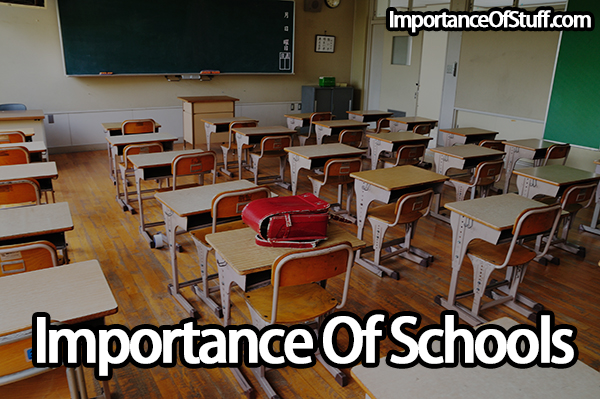‘To school’ means to train or discipline; to educate in or as if in an institution of learning. ‘Learning’ is defined as the act or process of acquiring knowledge or skill.
Most often, we use ‘to school’ and ‘to learn’ interchangeably. We imagine them as two verbs or processes that lead to the growth and development of an individual. And in both cases, we hope that these processes are facilitated with the setting up of an institution called ‘school’. Before we learn about the importance of school, let’s take a quick poll first:

World over, a school is a place where a child spends close to eight or more hours every day. And it has become necessary for every child to be a part of a schooling system that helps him or her learn what is required to grow up. In a society where the process of schooling has gained this importance, the right to school is a fundamental right that every child is entitled to. UNESCO defines the Right to Education as the right to access holistic learning irrespective of an individual’s race, class, caste or gender.
However, this does not mean that there is a fixed system with only one kind of universal education. When we enroll a child in a school, we hope that the system functions with a rationale that equips every child to pursue individual interests, however unique or unconventional they might be. Across the world, there have been different responses to this need for a learning system – and this has led to the setting up of schools that follow varying methods of education.
Private schools, public schools, home-schools, alternative schools, online academies, summer schools – each of these schools have adopted different methods of education, and we see each of them address a child’s development differently. A private school is commonly preferred when the government does not supply adequate or special education. Children enroll in online or summer schools in addition to a full-time school to gain specific training that their regular school might not provide – for instance training in a sport or a language. Home-schooling adopts a method that gives parents the freedom to design a curriculum for their children for a duration of their choice.
Why school is important?
Going back to our initial question, why does a child need a school in the first place to evolve and develop? Can’t a child pick up values and habits from what he or she sees every day and learn by a trial and error method? Isn’t that a more practical and street-smart way of evolving? These questions are at the base of debates around education and class room learning. However, what has largely been agreed upon is that there are some basic values that a child must be taught in order to develop, and historically schools have been successful in imparting these values.
Discipline is one such value that is constantly taught to control desires and habits and therefore regulate a child’s life. For instance, training a child adhere to a schedule or a time-table is important so that the child is punctual to his or her workplace in the future. Building confidence is another such value that is as important as teaching a skill. A child needs to not just be proficient, but needs to be constantly encouraged and awarded to aid the process of growing. A school is the first place for a child to build a support system, and a child slowly learns that it is okay to make a mistake or perform badly. A school always offers another chance and the child learns from a mistake.
In addition to this, a child also builds knowledge about several other things that are outside his or her curriculum. Building friendships, knowing how to resolve verbal and physical fights, understanding how to behave and support each other’s personalities, and identifying one’s leadership values are important life-skills.
A school not only offers a free space to seek information, but it is also a space for the child to meet people who function as a primary source of inspiration. Don’t we repeatedly hear children go on endlessly about something that a teacher said to them, or a small act of sharing by a friend? At a young age, a child’s memory is sensitive to the manner in which people speak, and the child retains the information for a long time. Therefore, a school is an environment where a child forges relationships and develops aspects of one’s own personality that teaches him or her lessons for a lifetime.